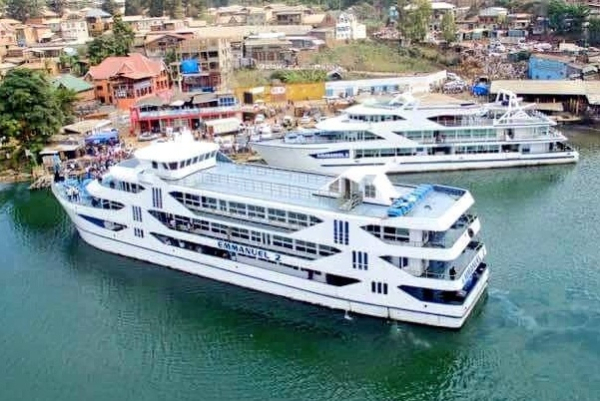The Congolese government has ordered four ferries to enhance its river transport services. Transport Minister Jean-Pierre Bemba announced the order last Wednesday, in an interview with the local channel Top Congo FM. He said the boats are being built, without indicating when they will be delivered.
"Four new boats will be coming out. They cost $250,000 each and can carry between 150, 180, and 300 people," Bemba said, stressing that the investment would be sustained, as the goal is to have a 100-boat fleet.
The purchase is part of recent government reforms to improve river transport and reduce the frequency of shipwrecks in the DR Congo. Indeed, shipwrecks have been on the rise in the country. The reasons include mainly using makeshift vessels, overloading, and the absence of stringent regulations.
The country’s river transport sector is officially managed by Société Congolaise des Transports et Ports (SCTP), also known as Office National des Transports (ONATRA). However, the sector is dominated by private operators, because the ONATRA has a small fleet.
Besides expanding the ferry fleet, the Ministry of Transport spearheads a crackdown on substandard boats–especially boats practicing overloading or with no passenger lifejackets. "There is also the dredging and beaconing of the Congo River that needs to be done," said Jean-Pierre Bemba, without providing further specifics.
Last September, the government inked a memorandum of understanding with China Harbour Engineering Company (CHEC) to modernize river transport. This agreement includes in-depth studies initiated in October to assess the necessary work for modernizing and developing this sector; however, it remains unclear whether current measures are directly influenced by these studies.
The initiative to enhance river transport comes amid ongoing challenges related to safety and infrastructure. The DRC has faced numerous incidents involving poorly maintained and overloaded vessels, leading to fatal accidents. The government's commitment to improving safety standards and expanding its fleet aims to address these pressing issues while facilitating better connectivity across its vast waterways.
This article was initially published in French, by Henoc Dossa (Ecofin Agency).
Edited by: Ola Schad Akinocho










